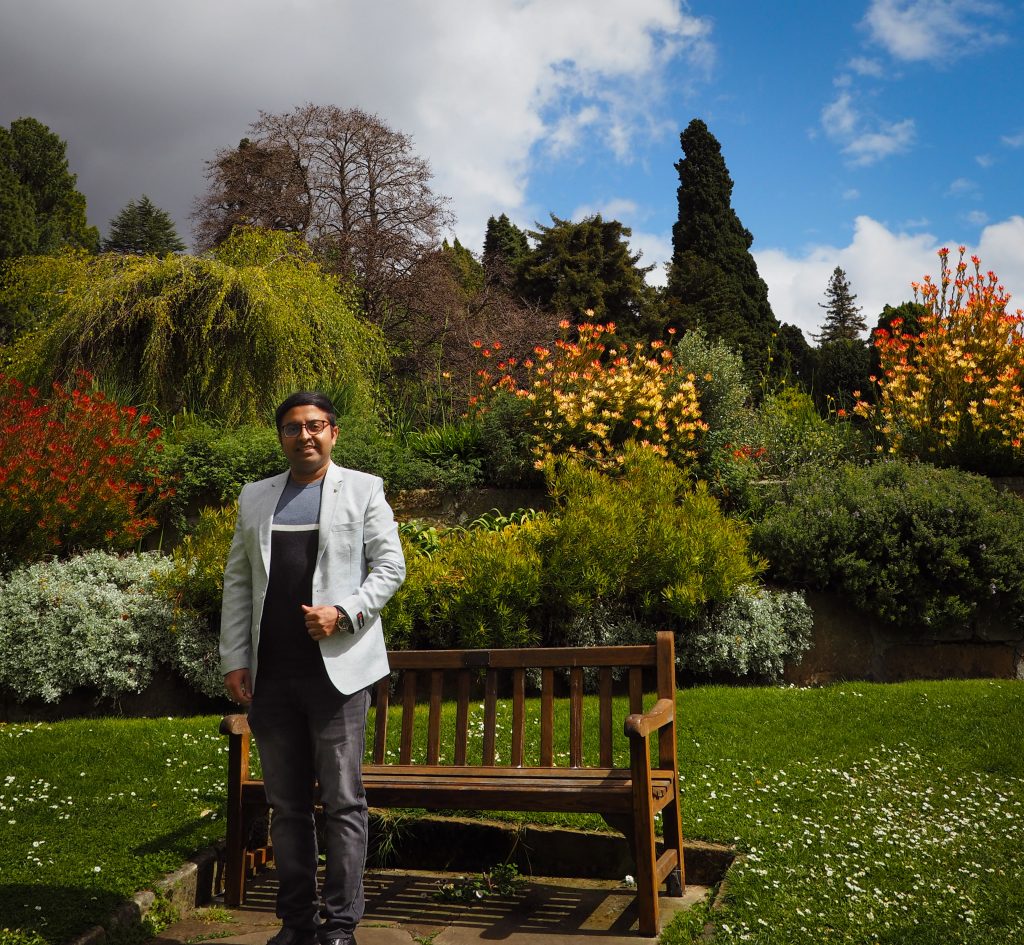Cultural awareness aids best-practice care
Posted on December 22, 2023

Hasnain Ashraf smiles broadly, handing over a home-cooked curry.
“I hope it’s not too spicy for you,” he laughs.
The podiatrist, better known to his clients and colleagues as Hassy, has a bright personality and positive outlook.
He applies this outlook to his role as an allied health provider at the Karadi Aboriginal Corporation – a position facilitated through the Medical Outreach Indigenous Chronic Disease Program (MOICDP), which is administered through TAZREACH.
TAZREACH, managed by the Tasmanian Department of Health, is the Tasmanian fund holder for Australian Government-funded outreach health programs which provide specialist and allied health services to rural and remote communities.
According to the 2021 Census, 30,000 people identify as Aboriginal and Torres Strait Islander in Tasmania – representing 5.4% of the state’s total population. This is above the national average.
And Primary Health Tasmania’s latest needs assessment report states that Aboriginal people continue to experience inequities in health outcomes.
Primary Heath Tasmania provides funding to Karadi to help Aboriginal people with chronic (long-term) health conditions, and to support social and emotional wellbeing. Some of these clients are referred into MOICDP.
TAZREACH and Karadi prioritise cultural consciousness to provide best-practice care.
TAZREACH supports service providers to exercise cultural consciousness in providing best-practice care by ensuring those providers funded under the Australian Government’s Indigenous Australians’ Health Programme undertake cultural awareness training.
Originally from Pakistan, Hassy is proud of his culture, and his personal experience and understanding of how it impacts his identity led him to investigate and seek further education on Australian Indigenous culture.
He has worked in multiple states around Australia and heard from Indigenous patients about their trauma relating to common stereotypes and narratives that invalidate their experiences and ultimately act as barriers to good health and wellbeing.
“There are some discrepancies and mistruths that add to the generational trauma of someone who is asking to be recognised and respected for who they are,” Hassy says.
He says some of his clients have received inappropriate treatment in the past due to providers failing to consider their cultural perspectives and needs.
“We know that the evidence suggests that trauma spans generations, so when we undermine the preferences of patients in that context, we’re perpetuating it. It’s so important to have shared decision-making with patients.”
Hassy believes a lack of genuine care integration increases frustration and decreases patient adherence to care plans.
“Sometimes it is hard for my patients to put themselves first – they just want to look after their families and community. But following the plan and adapting to their needs will help them to do that,” he says.
Hassy feels his approach benefits both parties: patient and practitioner alike.
“I have gained so much from learning about Indigenous culture and practices. As someone who was not born in Australia, and as a health worker, I see that we have a lot of space to cover with respect to certain communities, specifically Aboriginal and Torres Strait Islander communities.”
His person-centred and patient-empowering approach has made the clinician much loved by his patients and colleagues.
“The thing that I remind myself, and others, is the most important part is always the patient’s experience. It’s their life.”
